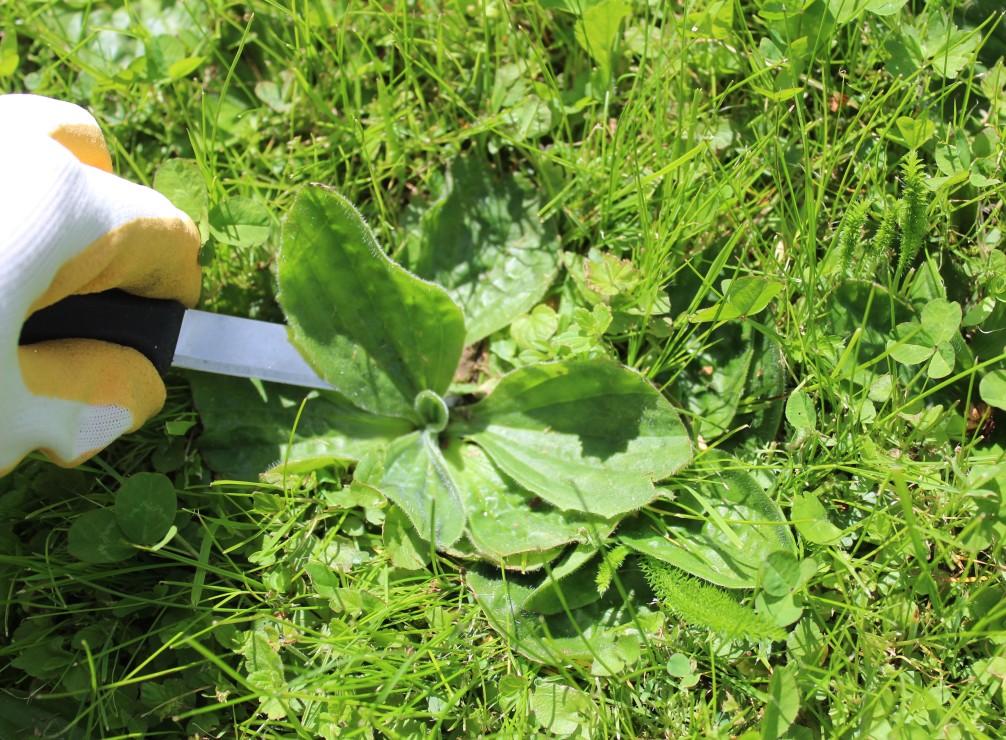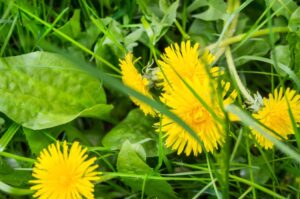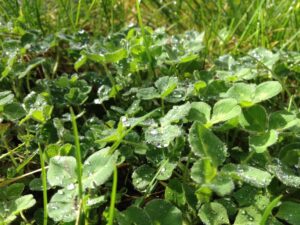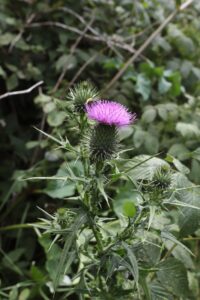Broadleaf weeds are responsible for major lawn invasions and can turn a properly maintained lawn into a big mess. They are an eyesore that needs to be removed as soon as possible as they will leave bald patches on your lawn, grass deprived of nutrients, and wilting plants.
Spotting broadleaf weeds on your beautiful Georgia lawn is bad news, so avoid them at all costs. Let us see some more reasons why.
What Are Considered Broadleaf Weeds?
In general, weeds are undesirable, invasive plants that will be jostling for nutrients and water from the soil, as well as sunlight, with other plants in the yard and garden. And if your plants, crops, and trees are not getting enough vital nutrients, they become more susceptible to disease and pest infestation. Weeds invade your turf and can sprout up anywhere. Wild-growing weeds will attract all kinds of different bugs as well as wildlife like raccoons or deer to your yard.
In the lawn, the large leaves of broadleaf weeds can displace narrow-leaved grasses because of the shade they cast on young, not fully formed grass.
Consequently, broadleaf weeds need to be dealt with immediately after they’ve been noticed on your property. The method you use to take care of the weed problem usually depends on the type of weed. As such, knowing the different types of weeds is important.
Weeds, classified according to their general morphological characteristics, fall into three main categories: broadleaf weeds, grasses, and sedges.
Broadleaf weeds are the kind of weed that will naturally feature flat, wide leaves with raised edges, and one main vein that branches into other smaller, reticular veins. They all grow from a stem, with some of them usually growing vertically, but other broadleaf weeds tend to germinate and stay fairly close to the ground.
Broadleaf weeds are either perennial or annual, and they can grow singly or as clusters. Oftentimes, perennial weeds are very difficult to control because they regenerate faster than they can be eliminated.
Among the huge variety of weeds, some of the broadleaf weeds commonly found in Georgia include: Clover, Dandelion, Thistle, Henbit, Chickweed, Plantain, Chicory, Asiatic Pennywort, Curly Dock, Hairy Bittercress, Violets, Spurge, Florida Betony, and Knotweed.
What Causes Broadleaf Weeds?
Overwatering your lawn and poor drainage are the primary culprits for the broadleaf weed problem that you might be experiencing. When you have excess water, it will not be able to drain away properly, and this means that the broadleaf weeds will have a better chance of growing in your lawn. This congestion means that there will be more than enough water for the broadleaf weed to thrive on and choke the rest of your lawn. Water that is simply standing there without getting drained away is very risky for your lawn. Without proper drainage in your lawn, any excess water will be a lucrative spot for the weeds to start growing.
Poor maintenance of your lawn is yet another major reason why broadleaf weeds tend to sprout everywhere. When you do not take good care of your lawn, the broadleaf weeds will make use of this opportunity to settle among your grasses and choke them of essential nutrients, water, and precious sunlight. These weeds are also aggressive, and any weak areas in your lawn are an ideal spot for them to set up shop.
Other reasons for broadleaf weeds growth include: excess sun and heat, nearby infestations, a lawn that is mowed too closely or has open areas, a lawn with low nitrogen fertility or compacted soil.
How To Prevent Broadleaf Weeds?
One of the best preventive measures that you can take to keep your lawn devoid of all weeds is simply taking proper care of it. Water it and feed it well enough to prevent any weak spots from occurring.
In addition, you also need to avoid scalping your lawn when mowing. When you have a thick lawn, it will choke the weeds and will not even let them have a chance to establish themselves. You can deter weeds by keeping a thick, healthy lawn and mowing it at the right height.
As the seeds of broadleaf weeds are typically located in the top layer of soil introduced into the ground, it’s essential to mow at 3 to 3.5 inches. Try not to cut more than 1/3 of the leaf blade in one mowing. Mow often, that is, twice a week in spring and every other week during summer.
Fertilizing is also recommended for your lawn and should be done at least four times every year. This will ensure that your lawn grows heavy and thick to take up all space and discourage the broadleaf weeds from trying to set root in your lawn.
How To Kill Broadleaf Weeds But Not Grass?
A broadcast weed killer is often considered the best solution when you have a lawn infested with broadleaf weeds. Treating your lawn with the broadcast weed killer serves two purposes; it kills the weed but feeds your grass to ensure that you can counter the threat and scale up your defenses simultaneously.
A “weed and feed” product that kills the weed but feeds the lawn will help the grass to grow thick, so that it crowds out any weeds that may appear in the future or even prevent them from growing at all.
It is important that as you apply the weed killer, read all the instructions, and always ensure that you choose a product that is specifically suited to your grass type. This way, you will be able to keep your grass alive and healthy while you root out the broadleaf weeds.
While you are shopping for the weed killer, keep in mind that selective herbicides are designed to kill only a specific type of weed, leaving other plants and grasses unaffected. On the other hand, non-selective herbicides will totally kill any green growing plant, whether it’s a weed or not. Most broadleaf weed herbicides found on the market are systemic and selective to eradicate just broadleaf weeds, thus, they won’t kill your grass.
Weed control is part of the lawn care service offered by our dedicated team at Guaranteed Green in the Metro Atlanta area. Contact us today and we will ensure that your lawn is healthy, strong, and weed-free all year round.






